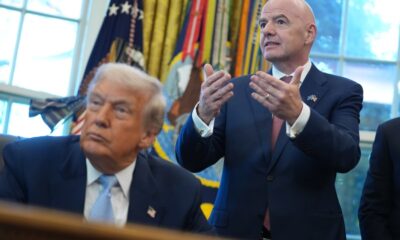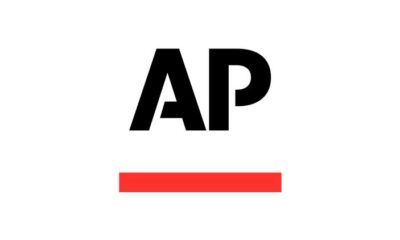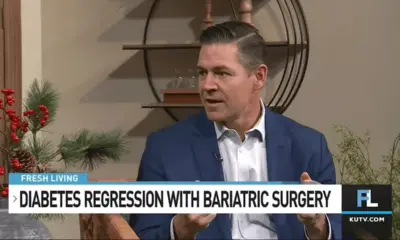Health
Federal Funding Cuts Threaten State Vaccination Programs Nationwide

Federal funding cuts have significantly impacted state and local vaccination programs across the United States, resulting in potential staff layoffs and reduced services. The reductions, amounting to millions of dollars, follow a review of funding agreements by the US Department of Health and Human Services (HHS), which has left many programs scrambling to cope with the shortfall. Officials warn that these cuts could lead to a decline in vaccination rates, particularly among low-income and uninsured populations.
The current landscape of vaccine-preventable diseases is alarming. The resurgence of illnesses such as pertussis, which has affected over 10,000 Americans this year and resulted in five fatalities, along with a measles outbreak claiming three lives, underscores the urgent need for robust vaccination programs. A public health policy expert expressed concern over the timing of these cuts, stating, “That’s the baffling part… Why anyone would create this disruption in the midst of the worst measles outbreak in 30 years.”
Funding Cuts and Their Implications
Most vaccination funding originates from the federal government, allocated through Section 317 of the Public Health Services Act. This grant money is essential for states, territories, and large cities to collect vaccination data, administer vaccines to underserved populations, and monitor vaccine safety. Funding is typically distributed in five-year grants overseen by the CDC, with the latest awards expected on July 1.
This year, HHS conducted extensive reviews of the funding awards, which delayed disbursements. HHS Director of Communications Andrew Nixon stated that these reviews are part of a broader initiative to ensure effective use of taxpayer dollars. “Grant recipients may be asked to provide additional information, which is essential to preventing waste, fraud, and abuse,” Nixon noted.
Public health advocates argue that these funding cuts reflect a troubling trend under HHS Secretary Robert F. Kennedy Jr. to undermine the nation’s vaccination framework. Dr. Caitlin Rivers, director of the Center for Response Outbreak Innovation at the Johns Hopkins Bloomberg School of Public Health, highlighted that many children missed routine vaccinations during the pandemic and have failed to catch up since. The rise in vaccine hesitancy, exacerbated by misinformation, has further jeopardized community immunity.
Widespread Consequences of Reduced Funding
The ramifications of the funding cuts are stark. Of the 66 jurisdictions awarded federal immunization funding this year, approximately 40 received less than their projected amounts. Some states, including Massachusetts, New York, and California, found their awards lower than in 2019, prior to the pandemic. For instance, Massachusetts anticipated receiving $7.7 million but ultimately received $6.7 million, a nearly 30% reduction in funding.
The funding uncertainty has prompted immediate operational challenges. In some cases, states like Idaho were forced to furlough immunization staff due to delayed funding. When the funds eventually arrived, the chaos had already disrupted regular operations, leaving providers without necessary support.
Cities such as New Haven, Connecticut, have also felt the impact, as they laid off immunization staff reliant on state grants. Chicago is reportedly preparing for similar layoffs. While some jurisdictions received funding increases, such as Alabama and Idaho, the majority face significant reductions without clear explanations for these changes.
The funding cuts further compound the challenges faced by state health departments already grappling with the loss of billions in unspent COVID-19 relief funding. In March, HHS ordered the CDC to reclaim approximately $11.4 billion in COVID-era funding that had been allocated to local health departments, leading to the elimination of nearly 579 staff positions within state vaccination programs.
Dr. Brian Castrucci, president and CEO of the deBeaumont Foundation, criticized the funding decisions, stating, “We’re watching the deliberate dismantling of the public health safety net in real time.” As the nation moves further from the immediate threat of COVID-19, the decline in vaccination support raises significant concerns about future public health preparedness.
The complex changes to funding formulas this year, which consider factors like population density and rurality, did not mitigate the reductions faced by various jurisdictions. Programs that previously relied on straightforward formulas now find themselves navigating a more convoluted process, often resulting in lower-than-expected funding.
As public health advocates seek to address these challenges, they stress the importance of maintaining adequate resources for vaccination programs. Without sufficient support, the nation risks repeating past mistakes, allowing preventable diseases to resurge and threaten public health.
-

 Technology5 months ago
Technology5 months agoDiscover the Top 10 Calorie Counting Apps of 2025
-

 Health3 months ago
Health3 months agoBella Hadid Shares Health Update After Treatment for Lyme Disease
-

 Health3 months ago
Health3 months agoErin Bates Shares Recovery Update Following Sepsis Complications
-

 Technology4 months ago
Technology4 months agoDiscover How to Reverse Image Search Using ChatGPT Effortlessly
-

 Technology1 month ago
Technology1 month agoDiscover 2025’s Top GPUs for Exceptional 4K Gaming Performance
-

 Technology3 months ago
Technology3 months agoElectric Moto Influencer Surronster Arrested in Tijuana
-

 Technology5 months ago
Technology5 months agoMeta Initiates $60B AI Data Center Expansion, Starting in Ohio
-

 Technology5 months ago
Technology5 months agoRecovering a Suspended TikTok Account: A Step-by-Step Guide
-

 Health4 months ago
Health4 months agoTested: Rab Firewall Mountain Jacket Survives Harsh Conditions
-

 Lifestyle5 months ago
Lifestyle5 months agoBelton Family Reunites After Daughter Survives Hill Country Floods
-

 Health3 months ago
Health3 months agoAnalysts Project Stronger Growth for Apple’s iPhone 17 Lineup
-

 Technology4 months ago
Technology4 months agoHarmonic Launches AI Chatbot App to Transform Mathematical Reasoning





















